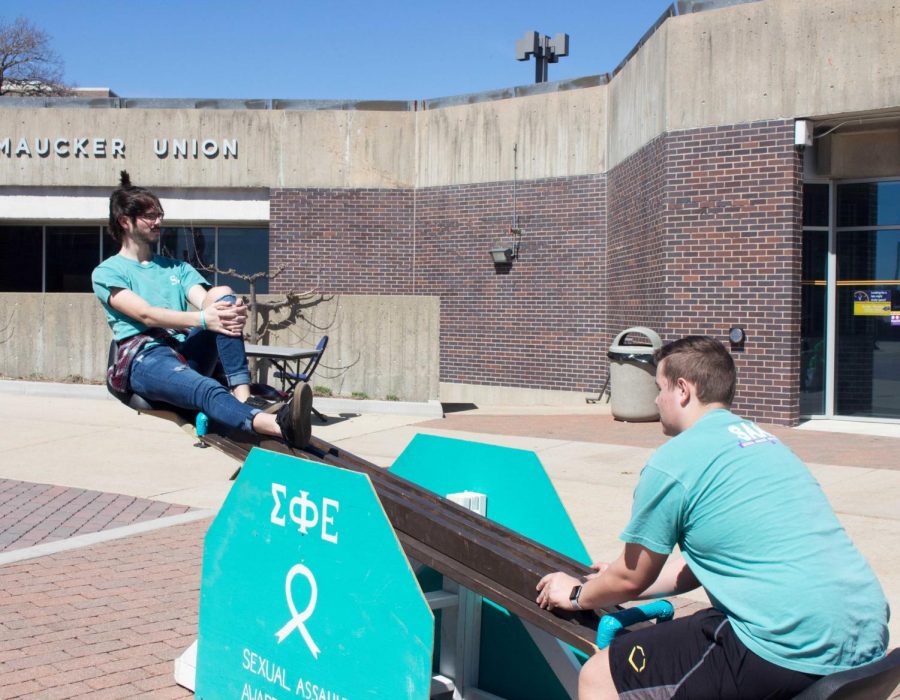The misconceptions of Greek life
Opinion Writer Colin Horning addresses preconceived notions regarding Greek Life organizations. Two men participate in Sigma Phi Epsilon’s See-SAAW event in April.
Sep 12, 2019
Chances are that if you aren’t involved in a fraternity or sorority, you have a negative portrayal of Greek organizations. Whether it’s the exaggerated images that Hollywood movies portray, the constant bad press and horror stories circulating in the news or the general negative stigma around those involved in Greek life, most people have a wildly inaccurate depiction of these student organizations. But most of these images need to be re-evaluated, especially since they overlook most of the opportunities and benefits provided by Greek life.
Far and away the best decision I have made since coming to UNI has been joining the Sigma Phi Epsilon (SigEp) fraternity and getting involved in the Greek community here on campus. Although I haven’t even been a member for a full calendar year yet, I struggle to think about where I would be if I hadn’t gotten involved with SigEp. This organization has provided me with my home away from home here at UNI, an emotional, mental and academic support system, as well as some of my closest friends and acquaintances. On top of this, the leadership opportunities, personal development, social programs and philanthropic events make me truly proud to be a member of my fraternity.
Of course, I have a bias towards my own fraternity. But each and every other Greek org on this campus provides the same benefits to its members, as well as other opportunities that I haven’t mentioned. So why do so many people have such disavowal towards fraternities (and sororities to a lesser extent)?
As previously mentioned, most people have a negative view of Greek organizations because the only instances in which they’re exposed to them is through horror stories in the news media and from Hollywood movies that over-generalize stereotypes (don’t get me wrong: “Animal House” is one of my all time favorite movies). It’s no wonder that many people have preconceived notions towards Greek orgs: the only depictions being exposed to the public are negative images.
I fully acknowledge that most stereotypes have some basis in truth, and many of the negative news stories (mainly from the 1980s) covering fraternities involve appalling behavior that should not be tolerated anywhere. But for the vast majority of Greek organizations and their members, these examples are simply not the case. Some of the most kind, diligent and highly-accomplished people that I have met since coming to UNI last year are people whom I have met in SigEp and around the entire Greek community on this campus. Being involved with a Greek-letter organization opens up so many opportunities within the confines of the UNI campus and beyond.
So how do we lessen the negative stereotypes that have unfortunately become commonplace with Greek Life today?
First and foremost, the best way in my opinion is to simply be aware of any generalizations that you may hold towards these student orgs, and try to open yourself up to understanding our motivations and ideals.
Second, I recommend to not take one example of one Greek org and associate it with every Greek chapter around the country. Horrible things have happened within the purview of these organizations, but should not be linked to every single other one.
Lastly, simply talking to a Greek life member and asking about their experiences will likely clear up any previously-held stigmas. I’m certain that practically everyone will have positive things to say. I know for sure that I do.


















